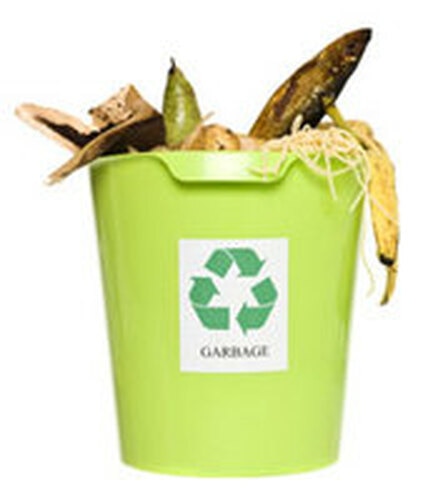With communities across the nation facing growing solid waste disposal issues, reducing your food waste has become a good idea both for the environment and as a business policy. A study at the University of Arizona estimated that the total food loss per day amounted to 49,296,540 lbs. in all full service restaurants and 85,063,390 lbs. in all fast food restaurants. Below are some tips for reducing your solid-waste costs and helping keep your profits from ending up in a landfill.
- Conduct a waste audit in order to physically see what your restaurant is producing and help shape the waste reduction program you would like to undertake.
- Identify your menu items that usually have the most leftovers and consider reducing the portion size.
- Use smaller plates to give the appearance of more food, even when less food is being used.
- Sort waste into their categories and subcategories. Categoris could be as broad as just landfill, recycle, and compost, or as detailed as meat, fruit, veggies, large recyclable plastic bottles, small recyclable plastic bottles, ect.
- Store fruits and vegetables properly. With proper storage of food you’re extending the time of use. Proper storage includes cleaning fruits and vegetables, storage in a suitable container and in the appropriate place with the obligatory labels with date of storage.
- When prepping food, only trim off what is not needed. The trimming you do produce can be used for soup stock
- Set up clear plastic buckets in the kitchen for the disposal of the organic waste. Review the bucket before throwing out to analyze the food waste and make corrections in technique if needed.
- Certain extra foods can be donated to food banks and can be deducted from your taxes. According to the 1976 Tax Reform Act (Section 2135), business taxpayers that make inventory donations to charities can receive an income tax deduction.
- Distribute condiments, cutlery, and accessories from behind the counter instead of offering them self-serve.
- Minimize the use of unnecessary extra packaging (e.g., double wrapping, double bagging, etc.) of take-out foods. Establish packaging standards for every menu item (and combination of items) and let your staff know it’s important to follow them.
- Bottles and cans are not the only things that can be recycled. Old cracked hotel pans, broken tongs and anything make of at least 75% metal can usually be put in the metal recycling bin. Contact your local recycler to confirm that they can accept these items.
As with any new initiative, to make waste reduction work, you will need full staff and customer involvement. Implementing new programs without a training plan will result in failure. Properly training your employees will ensure your sustainability programs are a success.

